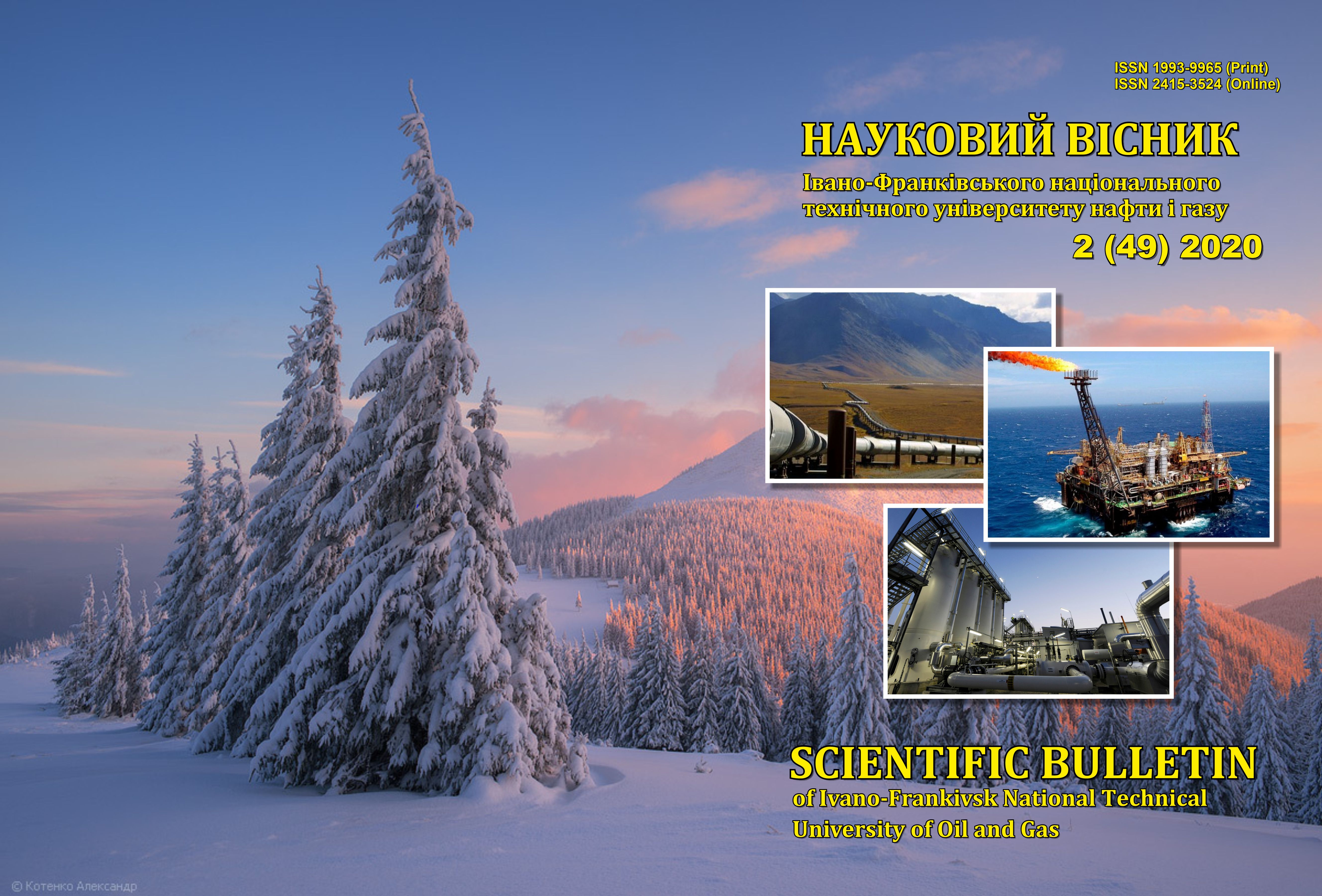Bearing capacity of steel fiber reinforced concrete with different fiber types
DOI:
https://doi.org/10.31471/1993-9965-2020-2(49)-18-24Keywords:
fiber, steel fiber concrete, compression, prism, cube, bearing capacity, deformabilityAbstract
The paper presents study results of the load-bearing capacity of fibroconcrete during dispersed reinforce-ment with steel fiber of three different types - anchor, flattened and corrugated. In all experiments, fiber was added in an amount of 1% by volume, which, as established in the preliminary tests conducted by the authors, is the op-timal percentage of reinforcement. The tests were performed on prisms and cubes measuring 100x100x400 mm and 100x100x100 mm, respectively, aged for 28 days.Four groups of prisms and cubes were manufactured. One - from usual concrete (with the sizes of large aggregate to 10 mm) of the C20/25 class, and three more - with different types of fibers. Each group consisted of six samples. All tests were performed on a press specially prepared for this purpose. Clock-type indicators, one for each, were attached to the side surfaces of the prisms to measure longitu-dinal deformations during loading. The load was applied in equal steps with a holding time of 10 minutes. The test results are presented in the form of graphs of the dependences of the relative deformation on the stress and in tab-ular form. When testing the cubes, only the maximum loads were recorded, due to the impossibility of stable fixing of sensors. It was found that the load-bearing capacity of steel fiber does not depend on the fiber type, but its pres-ence in the concrete changes the nature of the destruction of the sample. Instead of instantaneous brittle destruc-tion, a slow current process is observed, and the prism does not disintegrate into separate parts, but remains a single array with through cracks; fiber fibers keep it from final destruction. Prisms with steel fiber content with-stood loads 11% higher than concrete samples. The use of steel fiber improves not only the load-bearing capacity, but also the deformability. The relative longitudinal deformation of reinforced concrete was on average 36% higher than that of concrete due to the presence of pseudoplastic deformation phase in fibroconcrete.
Downloads
References
G. Velayutham, C.B. Cheah. The Effects of Steel Fibre on the Mechanical Strength and Durability of Steel Fibre Reinforced High Strength Concrete (SFRHSC) Subjected to Nor-mal and Hygrothermal Curing. Penang, EDP Sciences, 2014. https://www.matec-conferences.org/articles/matecconf/pdf/2014/01/matecconf_bust2013_02004.pdf
T.E.T. Buttignol, J.L.A.O. Sousa, T.N. Bittencourt, Ultra High-Performance Fiber-Reinfor-ced Concrete (UHPFRC): a review of material properties and design procedures. São Paulo, Rev. IBRACON Estrut. Mater, vol.10, no.4, 2017.https://www.scielo.br/scielo.php?script=sci_arttext&pid=S1983-41952017000400957&lng=en&nrm=iso&tlng=en
Mechanical Properties of High-Performance Steel-Fibre-Reinforced Concrete and Its Application in Underground Mine Engi-neering / Xiang Li and others. Materials (Basel), 2019.https://www.ncbi.nlm.nih.gov/pmc/articles/PMC6696420/
Tomasz Błaszczyński, Marta Przybylska-Fałek. Steel Fibre Reinforced Concrete as a Structural Material. Poznan, Procedia Engineer-ing, vol. 122, 2015, p. 282. https://www.sciencedirect.com/science/article/pii/S1877705815031264
Stepanov MV, Moiseenko GA, Diagrams of deformation of fine-grained high-strength concrete and high-strength steel-fiber concrete under compression. Moscow, Research Institute of Building Physics, RAASN, 2019. [in Russian]http://oreluniver.ru/public/file/archive/2073-7416-2019-83-3-11-21.pdf
Constitutive behaviors of steel fiber rein-forced concrete under uniaxial compression and tension / Xijun Shi and others. Construction and Building Materials, vol. 233, 10. 2020.https://www.sciencedirect.com/science/article/abs/pii/S0950061819327680
Seong-Cheol Lee, Joung-Hwan Oh, Jae-Yeol Cho, Compressive Behavior of Fiber-Reinforced Concrete with End-Hooked Steel Fibers. Materials (Basel), 2015.https://www.ncbi.nlm.nih.gov/pmc/articles/PMC5507035/
A Study On The Compressive & Flexural Strength Behavior Of Steel Fiber Reinforced Concrete Beam / Nafissa Tabassum and others. International Journal of Advanced Research, 2018.http://www.journalijar.com/article/24741/a-study-on-the-compressive-&-flexural-strength-behavior-of-steel-fiber-reinforced-concrete-beam/
Comparison of material properties of steel fiber reinforced concrete with two types of steel fiber / Z. Marcalíková and others. IOP Conf. Series: Materials Science and Engineering 549, 2019. https://iopscience.iop.org/article/10.1088/1757-899X/549/1/012039/pdf
Reza Babaie, Milad Abolfazli, Ahmad Fahimifar, Mechanical properties of steel and polymer fiber reinforced concrete. Journal of the Mechanical Behavior of Materials, vol. 28, issue 1, 2019.https://www.degruyter.com/view/journals/jmbm/28/1/article-p119.xml?language=en
Gafarova N.Ye. Fiber concrete for monolithic construction. International Journal of Applied and Fundamental Research. 2017. No. 3-1. P. 11.https://applied-research.ru/ru/article/view?id=11389
Neutov S.F., Boyadzhi A.A., Korneeva I.B. Opredelenie osnovnyih fiziko-mehanicheskih harakteristik stalefibrobetonnoy smesi optimalnogo sostava. World science, Warsaw, Poland. No 5 (33), vol. 2, may 2018, P. 26-30. [in Rus-sian]. https://www.elibrary.ru/item.asp?id=34924627
Betony. Metody vyznachennya mitsnosti za kontrolʹnymy zrazkamy. DSTU B.V.2.7-214: 2009 [chynnyy vid 2009-12-22]. K.: Minrehionbud Ukrayiny, 2010. [in Ukrainian]
BS EN 14845-2:2006 Test methods for fibers in concrete - Part 2: Effect on concrete.
Downloads
Published
How to Cite
Issue
Section
License
Авторські права....


1.png)

















